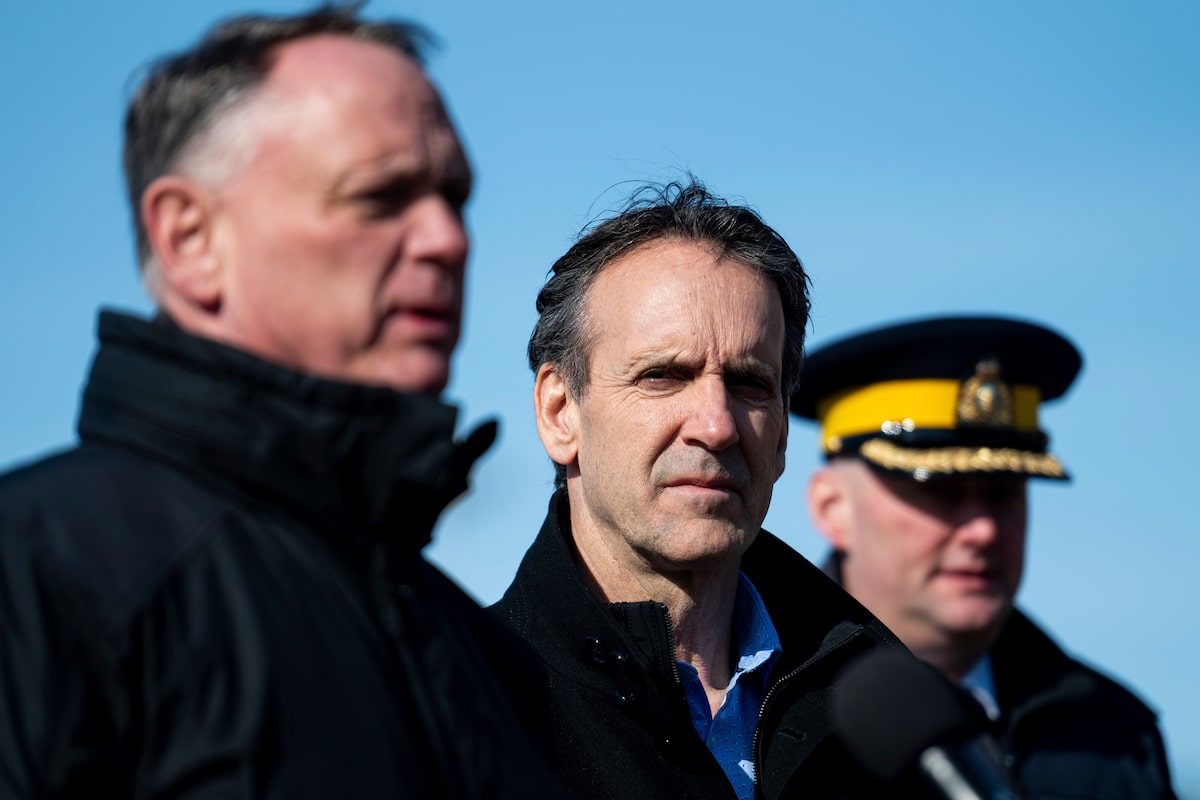Canada’s fentanyl czar Kevin Brosseau says he is focused on disrupting the trafficking of the opioid despite evidence showing Canada is not the source of the fentanyl seized in the U.S.Spencer Colby/The Associated Press
Canada’s anti-money-laundering watchdog has stepped up its efforts in the fight against illicit opioid trafficking, assembling a specialized financial intelligence team and providing a financial crime expert to the office of Canada’s fentanyl czar.
A senior official at the Financial Transactions and Reports Analysis Centre of Canada (FinTRAC) on Wednesday outlined the watchdog’s recent initiatives aimed at curbing what she characterized as a “continuing national crisis.”
Tina Matos, FinTRAC’s chief compliance officer and deputy director of supervision, said the agency has created a “rapid production intelligence team” to prioritize sharing actionable financial intelligence related to illicit opioids and organized crime with law enforcement.
“This is a real issue that we’re seeing in our streets,” Ms. Matos said during the Canadian Institute’s annual Canadian Forum on Anti-Money Laundering and Financial Crime.
FinTRAC has also provided a financial crime expert to help support the efforts of Canada’s fentanyl czar, Kevin Brosseau, in tackling the crisis, Ms. Matos said.
Canada’s previous prime minister, Justin Trudeau, appointed Mr. Brosseau, a former RCMP deputy commissioner, to the role in February to demonstrate to the United States that Canada is working hard to disrupt the flow of the deadly synthetic opioid.
Mr. Brosseau’s appointment came days after U.S. President Donald Trump signed an executive order saying that the flow of illicit drugs from Canada constituted an “unusual and extraordinary threat” and required expanded executive authority under the International Emergency Economic Powers Act to impose tariffs.
Mr. Brosseau has said he is focused on disrupting the trafficking of the synthetic opioid, even though evidence demonstrates that Canada is not the source of the illegal fentanyl being seized south of the border.
Canada’s anti-money-laundering laws require certain businesses, such as financial institutions, realtors and casinos, to report suspicious transactions and large cash transactions to FinTRAC. The financial intelligence unit passes along some of that intelligence to law enforcement.
Ms. Matos said that between November 2024 and March 2025, FinTRAC made more than 100 disclosures of intelligence related to fentanyl financing.
Those disclosures “directly contributed” to the seizure of 46 kilograms of fentanyl, nearly 16,000 fentanyl pills, 122 firearms and over $800,000 cash, she said.
FinTRAC has been utilizing financial intelligence to combat fentanyl trafficking for years. The watchdog is part of a public-private partnership called Project Guardian, which was launched in 2018 and aims to help Canadian companies detect the laundering of proceeds from the trafficking of synthetic opioids. The partnership is led by the Canadian Imperial Bank of Commerce and includes the RCMP, Canada Border Services Agency and the U.S. Department of Homeland Security.
Prime Minister Mark Carney’s Liberal government has tabled a border security bill that includes a number of measures aimed at disrupting the flow of dirty money through the financial system.
Among them are new restrictions on large cash transactions and significant increases to the monetary penalties that companies can face for failures in their anti-money-laundering controls.
